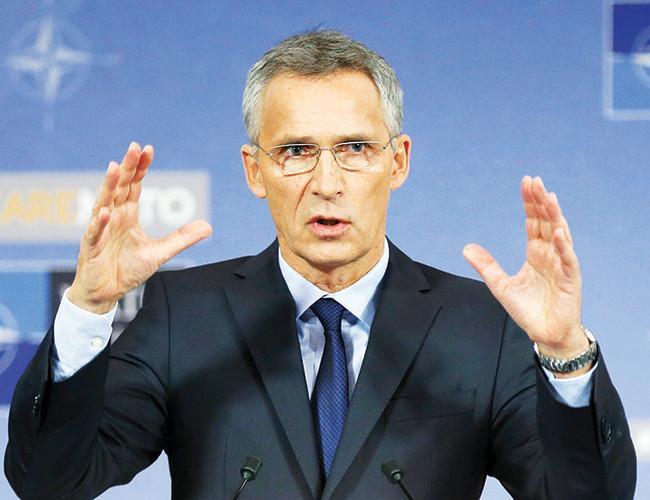NATO set to boost Afghan mission
BRUSSELS

NATO allies are set to agree tomorrow to increase by some 3,000 personnel the troop levels for the alliance’s Afghanistan training mission, NATO Secretary-General Jens Stoltenberg has said.
About half the additional troops will come from the United States and the other half from non-U.S. NATO allies and partners.
“We have decided to increase the number of troops ... to help the Afghans break the stalemate,” Stoltenberg told a news conference on Nov. 7.
Stoltenberg stressed the soldiers would not have combat roles but would be part of NATO’s train, advice and assist mission called Resolute Support.
U.S. Army General John Nicholson, the commander of the Resolute Support mission and of U.S. forces in Afghanistan, called for more troops in February, saying that a few thousand more troops would make a difference in weakening the Taliban and other jihadist militants.
The NATO contribution would take Resolute Support, which is building up Afghanistan’s army and air force, to around 16,000 troops, up from around 13,000 today, Stoltenberg said.
Under a new strategy announced by U.S. President Donald Trump, U.S. Defense Secretary Jim Mattis said in September that more than 3,000 additional U.S. troops will be deployed to Afghanistan.
While NATO officials declined to discuss troop numbers in detail, the expected announcement tomorrow by NATO defense ministers is likely to mean the U.S. troops will be split between the training mission and the U.S.-led counter-terrorism mission in Afghanistan.
During yesterday’s news conference, Stoltenberg also said the NATO defense ministers would be discussing alliances’ command structure as well as North Korea during their two-day meeting due to start today.
“NATO has constantly adapted its Command Structure over the past decades, to take account of a changing security environment. In a more unpredictable world, we have to adapt again,” he added.
Stoltenberg said NATO should ensure its command structure was fully capable of providing deterrence and defense at home, and projecting stability abroad.
















